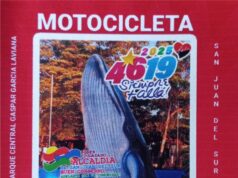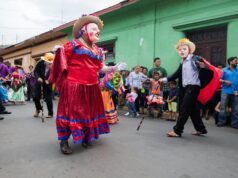Property tax in Nicaragua is known as Impuesto de Bienes Inmuebles, which means a tax on immovable property. It’s usually referred to by its acronym, IBI.
If you are at the alcaldía trying to pay, just say the initials “EB” rather quickly and wave a piece of paper, everyone will know what you are talking about and gladly help you pay!
The immovable part simply means property that cannot be transferred from one place to another and is therefore a fixed asset. It can be the land itself, such as a lot, a parcel or a farm and also includes property built on the land, such as a dwelling, garage, workshop, barn and even fixed machinery. Generally it’s anything that forms part of the overall property when it’s bought and sold.
Annual property taxes are calculated by the municipal “catastral” office and will be based on 1% of the tax base, which itself is 80% of the municipal catastral appraisal. See Tax On Real Estate Legislation – Executive Decree No. 3-95, Approved on January 31, 1995.
Payment
The system used by the municipalities that collect the property tax is;
50% of the annual amount can be paid during the first quarter of the year (January, February, and March) and the balance not later than June 30th.
Traditionally, they offer property owners an incentive of a 10% discount on the total property tax if it’s paid in one single payment during the first quarter of the year.
However, by not paying the IBI installments during the period from January to June, a fine of 10% is applied to the amount be paid from the first of July.
Taxes can be paid by the owner, a designated person (some Ex Pats have a lawyer with a Power of Attorney, although not required by the municipality) or the occupants of the property.
There are also some exemptions to the payment of IBI. These can include Indigenous communities, not for profit social assistance institutions, retired nationals (upon production of proof from Nicaraguan Social Security – INSS); some education facilities, tax free zone businesses (Zona Franca), Law 306 tourist businesses, as well as registered cultural, scientific, sports and arts facilities.
Property tax collection has a two year statutory limit of proceedings from when the tax is due to be paid.
Unpaid taxes can affect the ability of an owner in obtaining a “Solvencia” (a formal certificate required at times to show they don’t owe any money to the municipality). The “knock on effect” is that as a business owner renting from that landlord, you may have problems renewing your business license until any arrears are paid.
There is an administrative appeal process available through the Mayor’s Office for those who disagree with the valuation from the municipal catastral office.
By Kelvin Marshall, Nica-Biz







